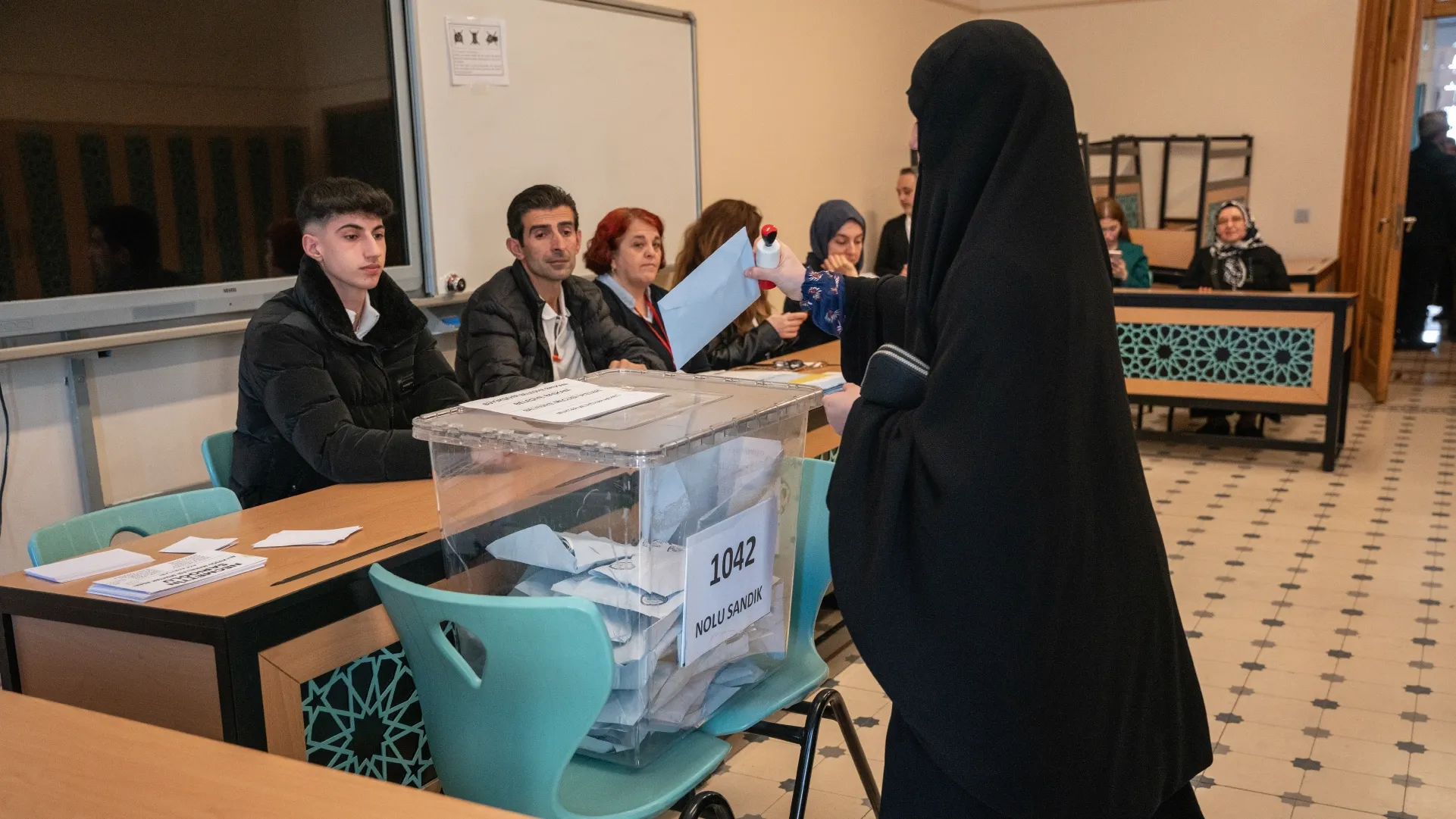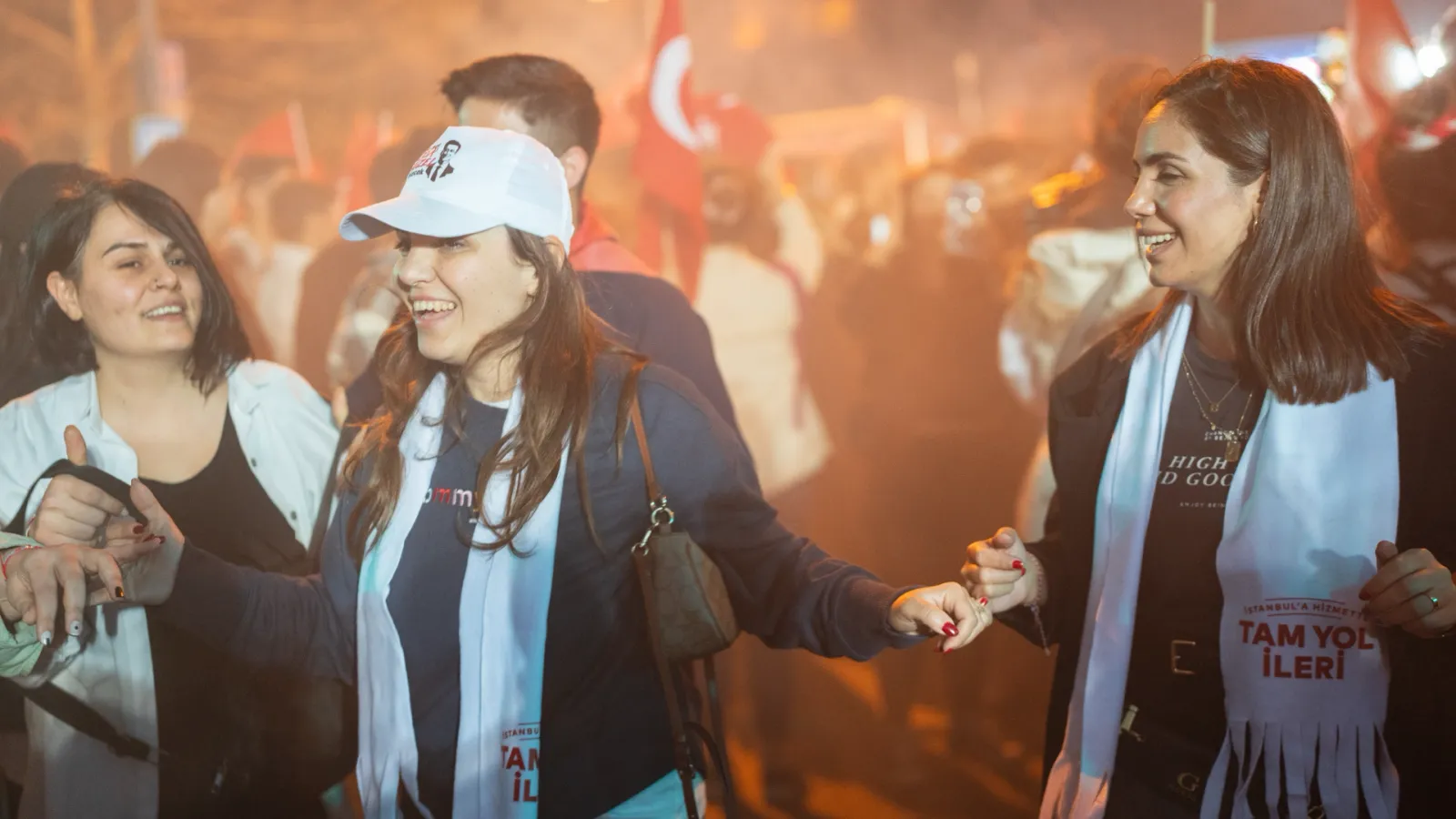A sweeping victory for Turkey’s opposition came on March 31 with the local elections delivering a serious blow to the AKP.
Millions of opposition voters are celebrating CHP’s wins as they took the majority of provincial municipalities for the first time in decades.
Here are the preliminary key outcomes from the historical vote.
I don’t care, I paint the town red
From the least spirited elections, with a lower-than-usual voter turnout rate (78.11%), came the most thrilling results for Turkey’s main opposition, the Republican People’s Party (CHP).
On the night of the March 31 local elections, millions of voters witnessed the map of Turkey covered in red for the first time in decades, symbolizing 35 out of 81 provinces CHP had won, including the biggest five: İstanbul, Ankara, İzmir, Bursa and Antalya.
According to unofficial results, compared with the last local elections, CHP doubled its total number of municipalities to 420 and is set to lead local offices in areas accounting for around 64% of the total population and 80% of the country’s economy.

Ekrem de la crème
All eyes were on İstanbul, where Erdoğan had hoped to exact revenge for the ruling Justice and Development Party (AKP)’s 2019 loss of the city.
But İstanbulians opted for Mayor İmamoğlu Sunday as early results showed him leading against Murat Kurum with an 11% difference.
A total of 12 districts changed hands in İstanbul, including Beyoğlu and Üsküdar, where Erdoğan has strong political and personal footprints.
İmamoğlu is now the only CHP figure to have won all his battles against the AKP.
The (first) lady on the balcony
No one else accompanied Erdoğan on Sunday night when he appeared on his party’s head office balcony. Previously used to singing and yammering from the balcony in jubilance, this time, he took the mic to deliver a speech conceding his defeat.
“March 31 is not the end but a turning point for us,” he asserted, saying he should take lessons for the road ahead to the next cycle of elections.
Erdoğan’s AKP won municipalities in 24 cities, down from the 39 it secured in 2019.
Castles in the air
Perhaps the biggest blow for Erdoğan came from his own Anatolian “castles” – Afyonkarahisar, Kırıkkale, Kilis and Adıyaman – provinces known for relatively conservative demographics.
The same goes for Balıkesir and Uşak where CHP won the mayoral seats from MHP.
AKP also lost in cities where it raced against its own ally, MHP, namely Çankırı, Tokat, Gümüşhane and Karaman. However, the total number of municipalities run by Devlet Bahçeli’s MHP dropped from 11 to 8.
A full circle of Islamist karma
AKP has seen a major drop in total votes. Some of its electorate base did not show up at all, and those that did either cast “protest votes” or shifted from the ruling alliance to the outer ring with the New Welfare Party (YRP).
The conservative Islamist political party garnered 6.19% of total votes nationwide in its first-ever local elections, declaring victory in Şanlurfa and Yozgat provinces, two former AKP municipalities.
YRP’s head, Erbakan, supported Erdoğan in last year’s elections but fell into conflict with the ruling party, especially over the former’s anti-Israel campaign, which called for a cease in trade relations.

A DEM sight better
DEM won a total of ten cities.
In the predominantly Kurdish region, DEM maintained its power, regaining all cities it had previously won but lost to Erdoğan’s kayyum policies. They even increased their total municipalities by two, taking over Muş and Ağrı from the AKP; however, losing Kars to the MHP.
In the Western metropolitans, its electorate base seemed to vote strategically instead of for its own candidates. In Istanbul, DEM’s candidate polled only around 2%.
Going up in space, not coming down to the public
Erdoğan’s meta-narratives did not work this time. The “no vote, no service” blackmails, fake videos, the first Turkish astronaut and smear campaigns against opponents all seem to have backfired.
Voters cast ballots for change, especially in cities and metropolitan areas, where economic impoverishment has been felt the deepest. AKP’s pro-security and discriminatory political discourse only resonated to a certain extent.
People went to the ballots with widespread anger against the economy and the inadequate promises of assistance from the ruling party.
‘Cause girls are players too
According to unofficial results, the number of women mayors more than doubled with this election, In 11 cities out of a total of 81 – Tekirdağ, Edirne, Gaziantep, Afyonkarahisar, Eskişehir, Bilecik, Aydın, Diyarbakır, Siirt, Batman and Ağrı – women came out as the winning candidate.
CHP tops the list with six mayors, followed by DEM and the AKP with four and one mayor, respectively.
More women have also been elected to district-level offices, although still remain significantly lower than their male counterparts.
A woman of no performance
Meral Akşener’s İYİ Party had been under fire since the election campaign kicked off. It was scrutinized for dissolving the opposition alliance and potentially dividing votes, only to end with a self-burn.
The Party’s total share of votes could not surpass 4%, bringing a victory in only one municipality, Nevşehir.
Inner-party tremors began while the counting was ongoing, but Akşener remains chair for now.
Source: Turkeyrecap




